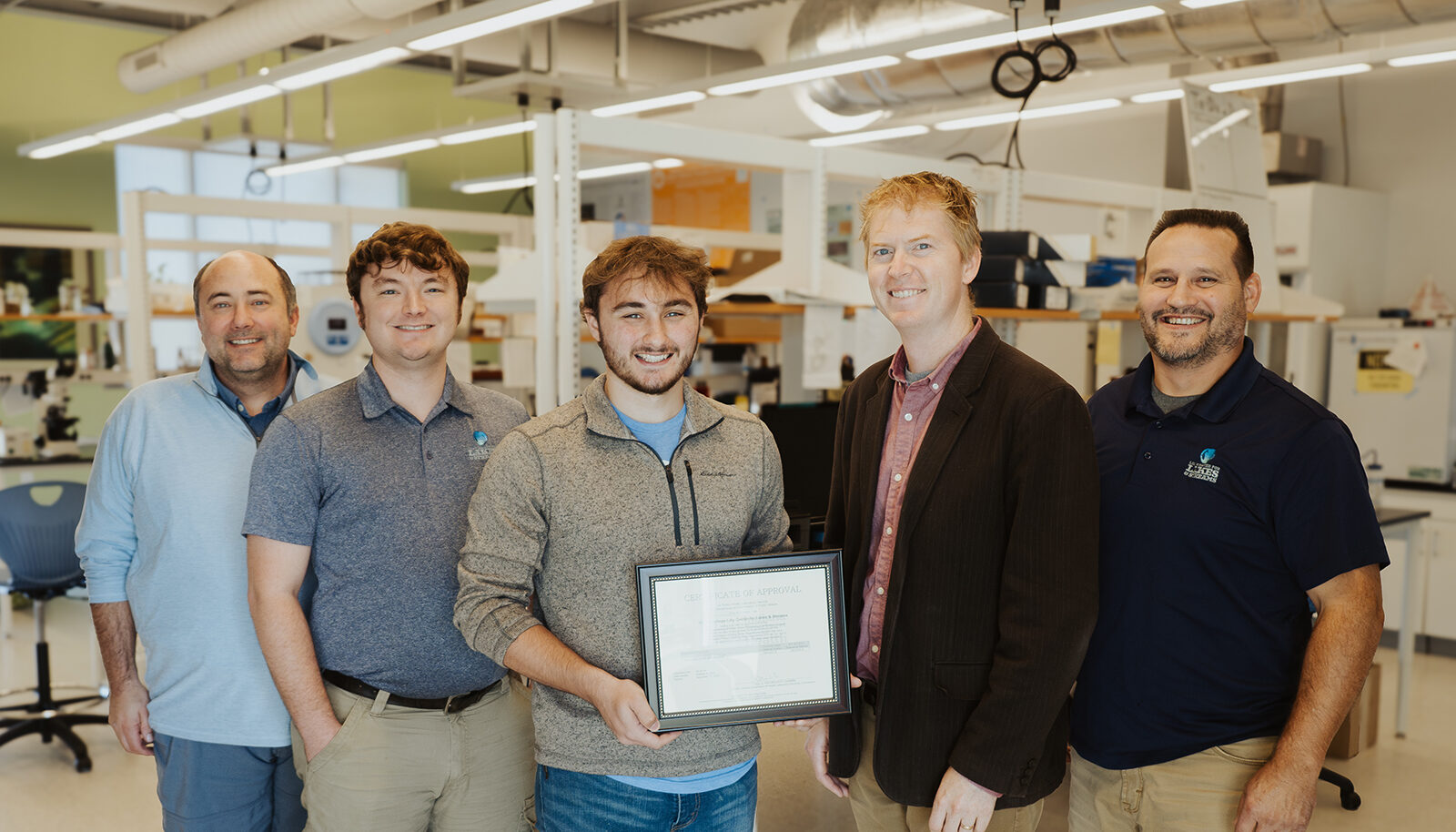The Lilly Center for Lakes & Streams is proud to announce that its E. coli testing program has been certified by the Indiana State Department of Health on Oct. 7, 2024.
“This certification is the result of countless hours our lab team has spent meeting the Department of Health’s high standards,” said Dr. Nate Bosch, Creighton Brothers endowed director of the Lilly Center. “We have increased confidence in our E. coli results thanks to the certification process. I am excited about how we can serve our community and integrate more E. coli data into our research.”
Escherichia coli, commonly known as E. coli, is a bacterium that has historically caused beach closures in Kosciusko County, particularly Center and Pike Lake beaches. Although hundreds of E. coli varieties exist, only a handful of these bacteria species are responsible for negative impacts on human health. E. coli live in the gut and intestines of warm-blooded mammals, including humans. The most common cause of illness is coming into contact with animal or human waste that contains E. coli.
Over the past four years, Lilly Center researchers developed a program that accurately tests and identifies E. coli in local waterbodies. Connor Frentzel, a Grace College student and Lilly Center lab assistant, began the process by doing in-depth research through an internship course. Under the guidance of Grace College professor and microbiologist Dr. Joe Frentzel and Lilly Center research technician Jed Harvey, Frentzel ran proficiency tests, sourced the necessary equipment, and wrote training manuals and standard operating procedures (SOPs).
“Creating the E. coli program and preparing for the audit by the Department of Health required years of research, creating procedures, and testing them,” said Frentzel. “Through experiments, I determined which procedures worked and which needed additional refinement. This certification expands the Lilly Center’s capacity for water quality research. It also opens up new ways to make our community safe.”
E.coli often ends up in a lake or stream thanks to rain runoff, improperly maintained septic systems, livestock waste, pet waste, and wild animal waste. In 2013, the Lilly Center partnered with the K21 Health Foundation to investigate the causes of elevated E. coli levels in public swimming beaches, which the Kosciusko County Health Department monitored. The study revealed, among other findings, that rain events led to higher E. coli levels, suggesting that E. coli washed in from outside the lakes. Thanks to this research project, the City of Warsaw implemented several projects, including native plant shorelines, to reduce runoff into the lakes. Native plants also discouraged geese from leaving their waste near the lake – reducing another source of E. coli.
Assistant director of research at the Lilly Center, Matt Burlingame, looks forward to more research projects like this in the future. “We have great confidence in our E. coli reporting thanks to our certification. It is another tool in our toolbelt we can use to identify where nutrients are coming from and understand their impact on our lakes and streams.”
Learn more about the Lilly Center’s efforts to make Kosciusko County’s lakes and streams clean, healthy, safe, and beautiful by visiting lakes.grace.edu or calling 574-372-5281.
The E. coli program and certification project to enhance our understanding of nutrients in our lakes is possible thanks to financial support from Marylou Hipskind, Henry Havel, Pete Smith, Tom & Judy Hayhurst, Doug & Karen Grant, the K21 Health Foundation, and the Luminous Foundation.




